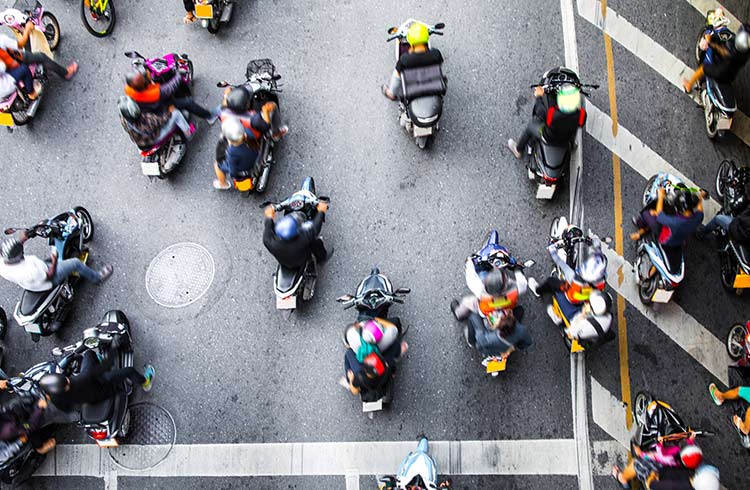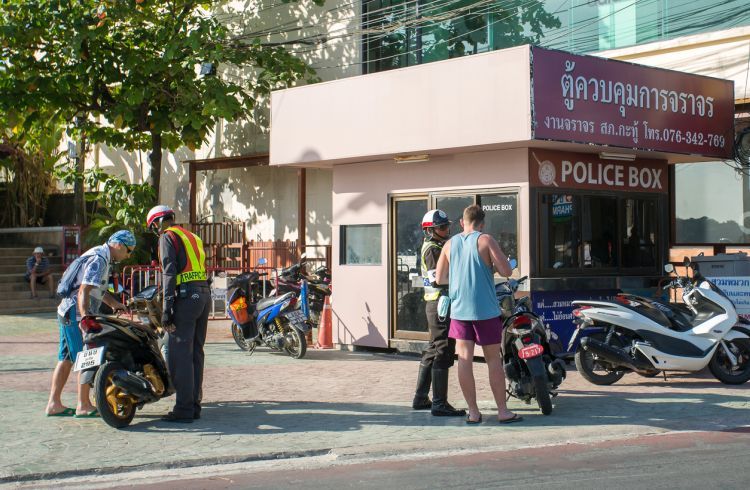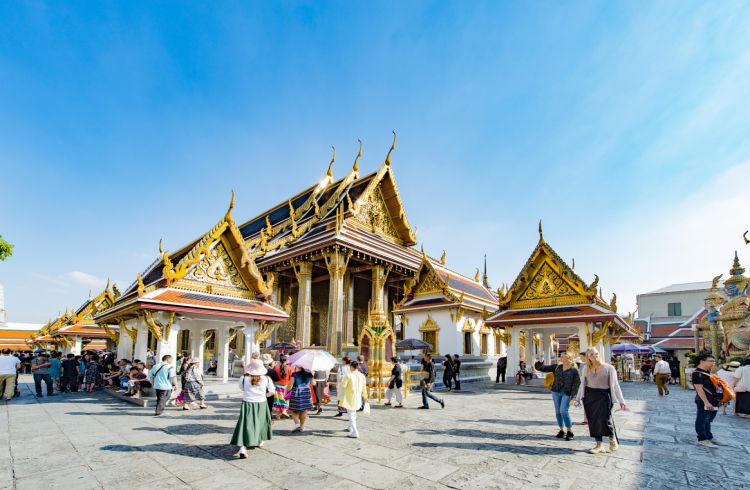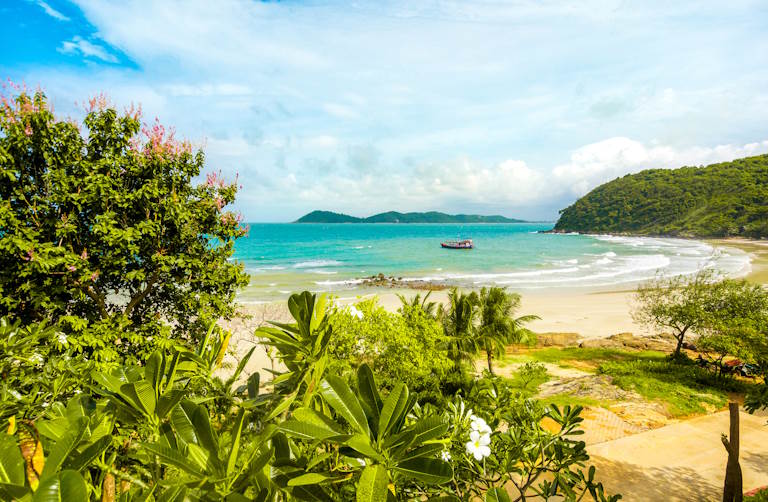Motorbikes and Scooters in Thailand: What Are the Rules?
Should you ride a motorbike in Thailand? What are the risks? Find out all the essential information before you rent two wheels.
 Photo © iStock/Leonardo Patrizi
Photo © iStock/Leonardo Patrizi
Each year, thousands of tourists hire motorcycles in Thailand. But before you join them, you need to know the following tips about insurance, helmets (including new rule enforcement as of mid-2025), road rules and scams, gleaned from my decade living on and off in Thailand.
If you choose to ride, consider travel insurance and be sure to comply with its requirements, such as riding with a helmet and being appropriately licensed to ride in your home country at your destination.
- Reconsider whether you need to ride a motorbike in Thailand
- Forget headlights, don’t ride at night
- Zebra crossings are dangerous
- Find a safe helmet
- Never hand over your passport
Reconsider riding a motorbike in Thailand
Before I even impart any advice on how to ride in Thailand, I’d ask you to reconsider motorcycling in Thailand. It is perhaps the most dangerous nation on the planet for motorcyclists. Thailand has one of the highest road death rates in Southeast Asia, with the World Health Organization (WHO) reporting a rate of 32.7 deaths per 100,000 people, or about three deaths every two minutes. Motorcycles, a primary mode of transport for many Thais, are involved in 77-84% of crashes, with head injuries being the leading cause of fatalities.
This does not surprise me given my experiences across many years of living and driving in Thailand. Its roads are clogged and chaotic. Motorists constantly disobey road rules, to the extent that it appears there are no rules. Cars speed wildly and swerve erratically. Trucks are similarly unpredictable. Motorcyclists are perhaps the most kamikaze of all, often weaving in between lanes without a helmet and seemingly no fear.
Even veteran motorcyclists face grave danger on Thai roads because no amount of skill can protect you from crazy motorists. Yet many tourists hire bikes despite having little to no motorcycling experience. That includes me. I made this error as a cocky young man and long ago vowed never again to motorcycle in the Land of Smiles.
Don’t ride at night
The first time it happened, I was in shock. By the dozenth occasion, I realized why so many motorcyclists die on Thai roads. What I’m referring to, is being behind the wheel of a car in Thailand, at night, and having a motorcycle ride towards me in the wrong direction and with no headlights.
This is an extraordinarily dangerous, yet common occurrence on Thai roads. Rather than taking the longer, legal route to their destination, some Thai motorcyclists prefer shortcuts, and will happily ride against the flow of traffic to save a minute or two.
Many more ride in the evening without their headlights on, making it near-impossible to see them until they’re directly in front of you. This is just one reason I avoid driving at night in Thailand, wherever possible. Another is that, according to Thai media, drunk driving is a plague, and it stands to reason this will be at its most common after dark.
Zebra crossings are dangerous
In Thailand, zebra crossings mean exactly the same thing they do in Western countries – they signify a location where motorists are meant to give way to pedestrians. The problem is many Thai motorists ignore this safety measure, especially motorcyclists.
While living in Bangkok, dozens of times I’ve carefully walked across a zebra crossing, only for a motorbike to fly through the middle of a line of stopped cars and nearly hit me. Even when walking with my baby boy in a pram this was a regular problem.
In 2022, this issue became national news when a Bangkok doctor died after she was hit by a motorcyclist who sped through a zebra crossing. Just because other motorcyclists ignore zebra crossings in Thailand, do not follow their lead when you’re riding. Be extra cautious whenever approaching one of these crossings.
Wear a safe helmet
Now you know Thailand is the world’s deadliest country for motorcyclists, you should be fixated on finding the safest possible helmet – because the risk of an accident is high and the businesses that hire motorbikes tend to offer cheap helmets.
Some of the motorbike helmets you’ll see in Thailand are barely more robust than an empty yogurt tub. When you collect your bike, don’t expect it to come with the kind of high-end, heavily reinforced helmets that are common in the West. That is what you desperately need. But you may well have to buy one of these yourself, or at the very least shop around at different rental agencies until you find one.
In mid-2025, Thai police launched a crackdown on helmet usage, fining riders and passengers for not using one. This includes visitors and locals alike. The results are still out if this will work, but it certainly helps the cause.
Never hand over your passport
This lesson I learned from an anxious experience. The first time I rode a motorbike in Thailand the rental company demanded I give them my passport as collateral. Rather naively, I complied. When I returned the motorbike, the staff member on shift pointed at scratches on its side and accused me of causing the damage and demanded I pay for it.
I denied responsibility and said I would not cough up any more money. Then he reminded me that he held my passport. Panic set in as I believed I was about to be scammed. Luckily, a more senior staff member arrived, recognized that the damage was pre-existing, returned my vital legal document, and sent me on my way.
But many, many other people in my situation are not so lucky. Possessing a tourist’s passport is the preferred form of leverage for Thai rental agencies that aim to scam foreigners, asking for big money to repair supposedly tainted bikes.
It should be noted that most of these businesses are trustworthy. However, there are enough dodgy operators that you should never part ways with your passport. Instead, offer them a photocopy of this document. If they say that’s insufficient, simply move on to another rental company.
Related articles
Simple and flexible travel insurance
You can buy at home or while traveling, and claim online from anywhere in the world. With 150+ adventure activities covered and 24/7 emergency assistance.
Get a quote


No Comments